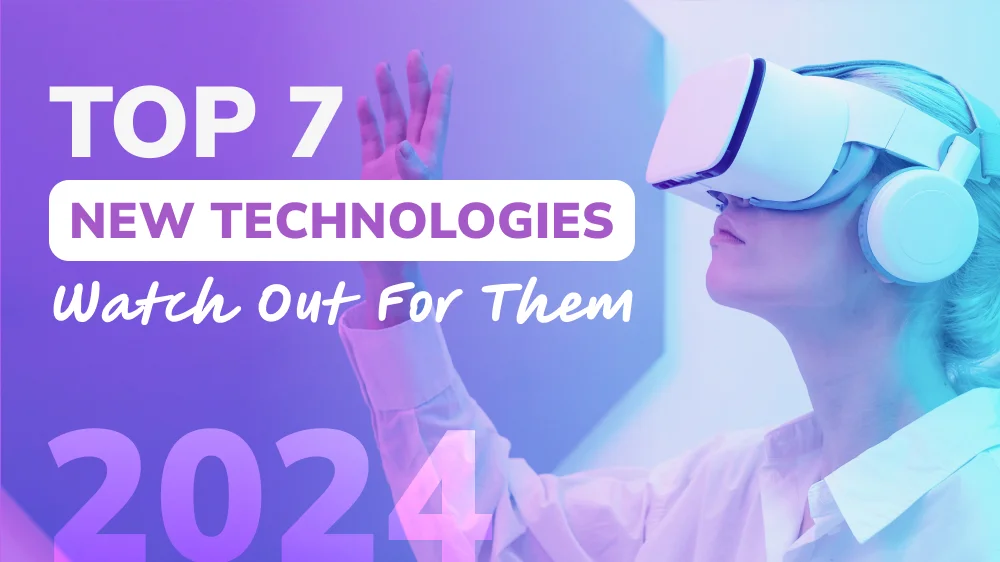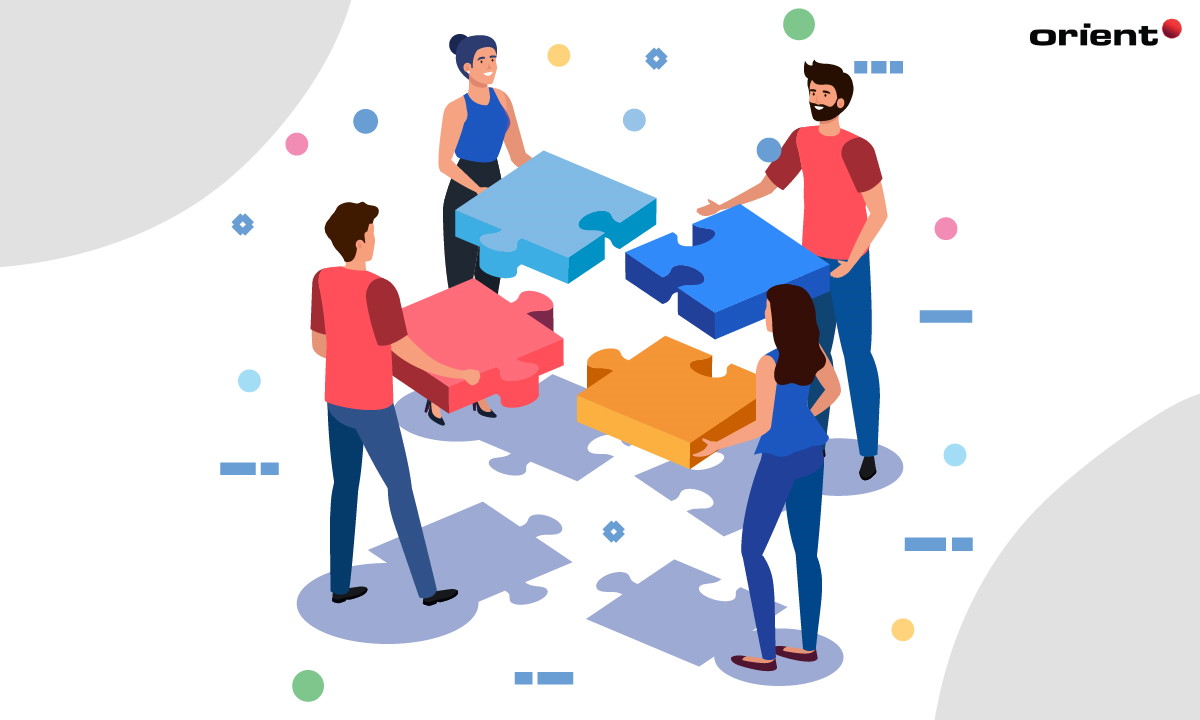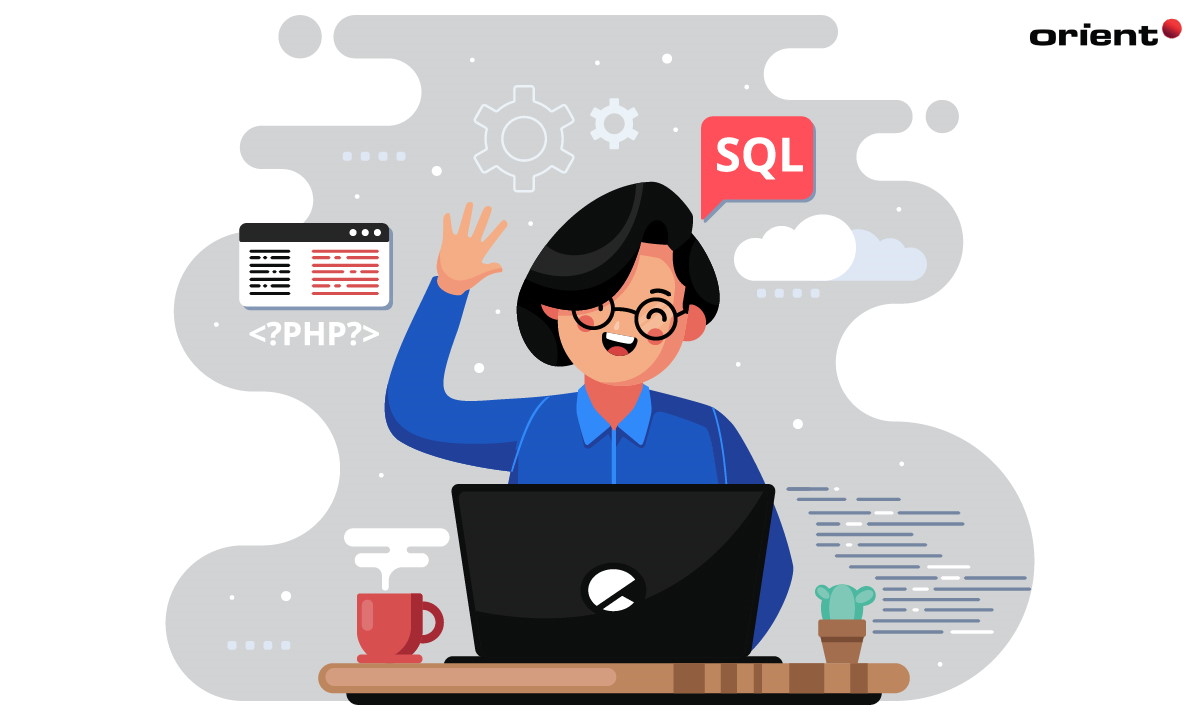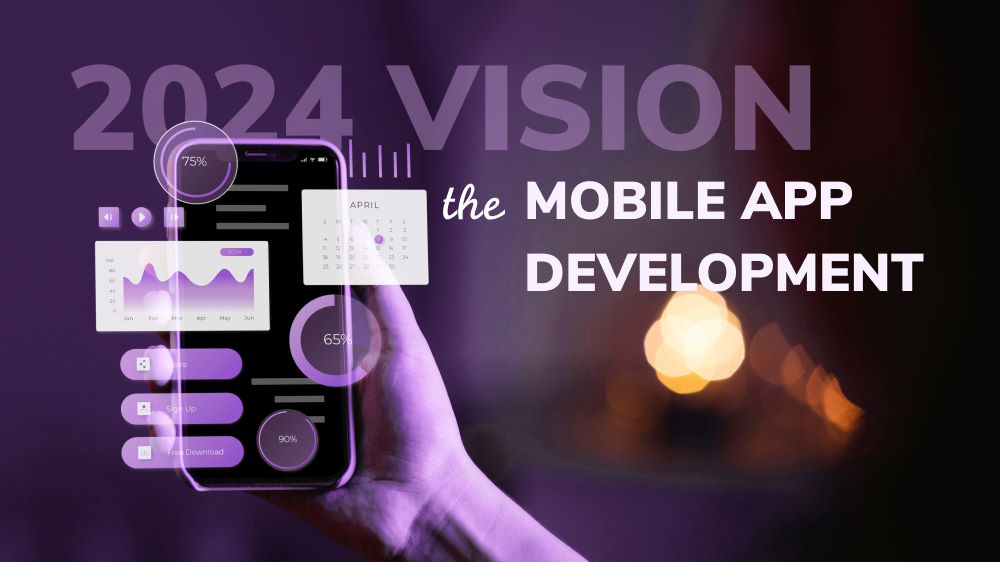
Top 7 New Technologies 2024 - Watch Out for Them
Generative AI, a new wireless charging standard, and a more efficient way to use your smart home devices. Here are seven new technologies in 2024 to be excited about.


Welcome to Vietnam – the land of opportunities and boundless potential for doing business across industries. The country inheritably boasts wealthy natural resources, a young and dynamic population, steadily stable economic growth, a business-friendly environment, a well-developed infrastructure, etc., and above all, a time-honored culture. All the favorable elements make up a “promising land” for outsourcing and doing business called Vietnam, luring foreign investment into the country by year. One of the sectors that are most likely to be contracted out to Vietnam is software development outsourcing.
However, like any nation, culture always poses the biggest hurdle when it comes to international integration and collaboration with foreign investors and partners, especially Asian culture. The business culture in Vietnam is unique and complex, like the country itself. Therefore, doing business in Vietnam is like dining when all the best dishes are already served on the plate. To reach the competitive edge, you must first pass through the business culture, which is the very first door.
Thus, if you are planning to run a project, conduct business, outsource to Vietnam, or simply work with Vietnamese people, knowledge of the culture is a must. Rest easy because you have this handbook in which we will highlight some of the critical characteristics of Vietnamese business culture that you should be aware of before engaging with local partners and stakeholders in the country.
Compared to the language barrier, cultural clashes may make a big deal. It is not that difficult to step into the Vietnamese business environment and turn over a new leaf, but there is no guarantee to step out of the country with success, not without learning enough about the local business culture. This is true for not only Vietnam but all, including your home country. To know oneself is true progress; therefore, it is significantly vital to get to know about one country and its people and business terrain before proceeding any further.
In fact, the Vietnamese business culture is far more appealing than any others as long as you are cognizant of it at some levels. What makes understanding business culture so essential? The answer is simple – It is the key to successful business partnerships.
A good understanding of the Vietnamese market economy, people, and culture will enable you to better gain insights into how the locals think, make decisions, and conduct business operations. By understanding the nuances of Vietnamese culture, you can bridge the gap between your expectations and their native traits that are otherwise different from Western mindsets. Moreover, Vietnamese business leaders will appreciate your efforts in respecting and embracing the local cultural norms and values. This will go a long way toward building strong, lasting relationships that have the potential to extend beyond business projects.
On the contrary, doing business in Vietnam or any country without proper comprehension of the local culture can be an uphill task, or even worse, it may cost you dearly and imply risks of failure and loss as well. Thereby, this handbook serves as an introduction to the basic business culture in Vietnam so that you are able to make the most out of your time, resources, and opportunities.
By business culture, we mean a lot of aspects that require you to invest time and put your mind to learning about Vietnamese society, culture, and people. There will be a lot of nitty-gritty details to remember and digest, but no worries because we will separate them by some kind of categories and lead you through each.
In order not to violate the unwritten rules stipulated by Vietnamese business people, you should try to keep these in mind to catch the signals rightly as well as respond properly:
Greeting Etiquette
In the business environment, it is customary for Vietnamese colleagues to bow slightly and say utter words like “Xin Chao” (Hello/Hi) or “good morning” when they meet each other. When greeting someone for the first time or meeting up with important clients (such as business partners), they will include handshaking, presenting business cards, and self-introduction as a gesture of welcoming and being polite.
Respect for Seniority
Vietnamese people are known to be very respectful of their superiors and honor hierarchies, which means that decisions should come from those at the top of the ladder. They tend to address people much older than themselves as a way to express their respect and formality since, in most cases, the most senior person is often the most aged. So, do not feel odd if someone uses honorifics to you; it is simply that they are showing you their respect. When giving a business card, they always slightly bow and give it to the most senior person first and then hand the rest to other people.
Titles & Hierarchy
Vietnamese people do not refer to each other by surnames but by first names instead. In contrast to the West, titles in Vietnam are used more often than not. Vietnamese people attach great importance to titles and positions when addressing someone. Names should be followed by their respective titles or positions. In addition, respect towards seniors once again is also an essential part of Vietnamese business culture since they believe that those with higher ranks must be respected regardless of age. Therefore, it is not uncommon to see more senior colleagues being addressed with deference and respect. This may be partially impacted by the official language – Vietnamese – as in the language, people use honorifics toward others based on the hierarchy, primarily ages. Therefore, not including titles will be considered rude.
Body Language
Body language is critical in business communication, as it can convey more than words and illustrate understanding and intention more clearly in some cases. The use of body language at your place and not only in Vietnam but also in most Asian countries can be much different. Therefore, notes should be taken in order not to read the signals wrongly or behave inappropriately. In particular, it is considered impolite to touch someone else’s head or point at them with your finger.
Furthermore, pointing at someone or something with your feet is considered a major sign of disrespect and should be avoided. You should also not cross your hands or legs while talking to people, as it implies that you are not paying attention. Moreover, public displays of affection, such as hugging in the workplace, should be avoided unless it is a close family or friend. In addition, putting one or both hands in pockets is seen as arrogance and a lack of respect for the opposite.
Business Attire
In north Vietnam, Hanoi, for example, mainly sticks to the white-collar environment in which people dress in formal attire day by day. This is especially suitable for males, and they should wear suits with a shirt and tie. Females, on the other hand, should at least wear a blazer or jacket paired with trousers, skirts, or dresses. Despite this, both genders need to dress professionally and conservatively, as bright colors are generally frowned upon. Moreover, it is essential to stay neat and tidy as first impressions are very important in the business world. Meanwhile, south Vietnam, such as Ho Chi Minh City, is more business casual, and people are encouraged to dress politely and smartly yet comfortably and actively.
But overall, business attire in Vietnam will vary depending on the location and situation. Today, clothing etiquette in the business environment has become easier to breathe for Vietnamese staff as they can wear everyday styles to work. In case of a special or important occasion, such as a business meeting, Vietnamese business people will automatically dress up formally to fit the nature of the places or events they attend.
In addition, the attire also depends on the seniority level and position. The higher the person is in rank, the more formally they should dress. Nevertheless, regardless of your position and rank, it is important to always appear smart and professional at all times, as you can never go wrong with proper business attire.
Gift Giving & Acceptance Etiquette
In Vietnam, it is not uncommon to give or receive gifts from a business partner. When it comes to gifts, they are almost always welcomed in Vietnam as a gesture of goodwill and appreciation, and this is also one of the most prevalent ways to build business relationships. Normally, the types of items and budgets for gifts are often decided based on the gift-giving occasions or receivers. No matter what choices, gifts should be practical and useful but not too ostentatious. Therefore, selecting gifts is such a daunting task yet an art, not to mention how you wrap the presents and how you give them away. If you are the receiver, it is customary not to open the gift right when you receive it or later. In most cases, Vietnamese people unbox gifts at home or somewhere private.
Face-saving
In the opinion of Asians, including Vietnamese, the concept of keeping face is not only commonplace but also important as it means protecting the prestige and reputation of oneself. Therefore, a person will allegedly “lose face” or lose respect if he or she is embarrassed or humiliated in front of others, and vice versa. In the business environment, people are expected to be diplomatic and humble when expressing opinions or dealing with issues, as being too direct may make the other person feel uncomfortable and lose face. Thus, it is important to be more respectful when communicating with colleagues so that no one has to suffer from embarrassment due to your words or actions.
Work-life Balance
When working in Vietnam, there is an expectation of retaining a balance between professional and personal life. This means that it is important to dedicate the right amount of time to both work and leisure activities in order to keep yourself healthy and productive. Moreover, it is also essential to respect other people’s privacy when outside or inside the workplace, as it is considered rude to inquire too much. Additionally, unlike other countries, it is normal for people in Vietnam to take regular breaks throughout the day in order to rest and enjoy a meal together with their colleagues. This will help build a positive work environment and stronger relationships among team members.
Reciprocation
In the Vietnamese culture, reciprocation is highly valued and embraced as etiquette in life as well as in business. Therefore, it is common to return a favor after someone has helped you with something and vice versa. This idea is so deeply rooted in the nation that many Vietnamese people are uncomfortable when they cannot reciprocate a favor given to them. This idea is also essential in business settings, as it helps build and maintain good relationships with customers, partners, and colleagues. Reciprocation is also a Vietnamese way to build and maintain personal relationships inside or outside the workplace.
Punctuality
In fact, the Vietnamese are not well known for punctuality, and not all Vietnamese people have a strong sense of it. Therefore, it is considered quite normal for people to arrive 15 to 30 minutes late for functions, meetings, or appointments, especially in cases of ones outside the company. Nevertheless, it does not necessarily mean that you have to follow their standards and try to muddle through the stagnation due to lateness. Instead, it is customary to schedule business meetings or special appointments a little bit earlier than necessary so that your Vietnamese partners can make it in time, even in case of an emergency or unwanted situation. Additionally, it is essential to inform the other party about any changes in plans or schedules beforehand as a sign of respect for their time.
Eating & Drinking
Vietnamese businessmen have a concept of dining with partners before and after a business meeting. They believe that a cozy and comfortable atmosphere helps to break the tension and create more sincere conversations, which is much more convenient for negotiation and discussion. Therefore, it is not uncommon for them to invite their business partners out for meals and beverages as part of the negotiations or to celebrate the successful conclusion of a deal.
There are a few things to get to know before having meals with the Vietnamese. Firstly, tea is always served at the reception to show hospitality. Secondly, Vietnamese people tend to share food. A typical Vietnam meal will include several dishes placed together on the table, and you will share these dishes with others by picking some for yourself. People also have the etiquette of passing food to each other as a gesture of care, and they often wait for the eldest to begin eating first. Thirdly, you will be using chopsticks and spoons in a Vietnamese meal instead of forks and knives, and small bowls will be preferred to plates too.
In Vietnam, drinking alcohol is a long-standing custom that is always present during business meals. There will be lots of toasting, so make sure to raise your glasses to everyone at the table before sipping your beverage. It’s also polite to hold off on getting more drinks until everyone at the table has finished theirs. The Vietnamese practice this “on-table ritual” because they believe it will foster closer relationships between individuals.

In the past, there was a significant gender gap in Vietnamese business culture, as women used to be expected to stay at home and take care of family affairs instead of being involved in professional life. Nonetheless, this is no longer the case now. As an increasing number of female entrepreneurs are entering the business world, it can be said that Vietnam has been making remarkable progress in terms of gender equality in the workplace.
In Vietnamese business culture, women are expected to be humble, respectful, and understanding rather than assertive or competitive. They should also dress professionally and wear proper makeup and avoid overly casual attire. When greeting someone, Vietnamese women prefer bowing rather than handshaking. When needed, you should let the women extend their hands first. When it comes to a business dinner with women, a public venue should be selected. Last but not least, it is essential to be mindful of any comments you make in the presence of women, even in a business environment.
These are some of the basic norms and values that you should bear in mind when doing business with Vietnamese partners. Although there may be differences between countries, understanding the culture and etiquette can help you develop better relationships and foster successful collaborations with your Vietnamese counterparts.
Are you searching for a Vietnamese partner whose solid expertise, experience, and resources will serve your software development project well? Come to Orient Software - the top-tier service provider from Vietnam - that offers a full set of services, ranging from software outsourcing, staff augmentation, and managed services to software product development. We will make sure your project takes off smoothly and stays on track. Drop us a message here.
Generative AI, a new wireless charging standard, and a more efficient way to use your smart home devices. Here are seven new technologies in 2024 to be excited about.
Is GPT-5 a revolutionary AI or a job-killer? Explore the truth behind the hype.
The latest mobile app development trend involves AI, cloud computing, voice recognition, super apps, and stronger mobile security.
Are you excited about the upcoming trends in IT and software outsourcing? Let’s do the guessing in this article.
eCommerce technology trends are constantly evolving, but that doesn't mean they're hard to keep up with. Find out what will rule eCommerce industry by 2022.



